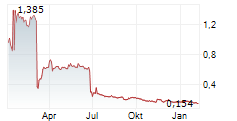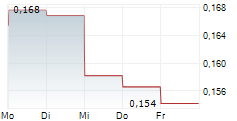
GOTHENBURG, SE / ACCESS Newswire / March 28, 2025 / IRLAB Therapeutics (STO:IRLAB-A)(FRA:6IRA) Gothenburg, Sweden, March 28, 2025 - IRLAB Therapeutics AB (Nasdaq Stockholm: IRLAB A), a company that discovers and develops new treatments for Parkinson's disease, today announces further results based on prespecified in-depth efficacy analyses of the data generated in the Phase IIb dose finding and efficacy study of pirepemat (REACT-PD). The analysis reveals that in a medium plasma concentration range, pirepemat reduced the fall rate by as much as 51.5% after three months of treatment. This effect is highly clinically meaningful and statistically significant (p<0.05 vs. placebo). Based on these compelling results, the company now continues with further analyses of the study data to reach a decision on how to best design forthcoming studies during the continued clinical development of the drug candidate.
The REACT-PD study in patients with Parkinson's disease was recently completed. As part of the pre-specified analyses beyond topline data, the company has now investigated the relation between pirepemat exposure (i.e., plasma concentrations) and fall rate within the dose range used in the study. The results show that the relationship between exposure of pirepemat and the fall rate follows a biphasic pattern. Medium exposure of pirepemat reduces fall rates by 51.5 % at the end of the treatment period (p<0.05 vs. placebo over the treatment period) whereas high and low exposures do not lead to beneficial effects. Study participants from both the 600 mg and 300 mg daily cohorts are evenly distributed in the medium exposure group.
"The React-PD study is a pioneering dose finding Phase II study designed to provide information on the effects of pirepemat on fall rates in Parkinson's disease, an area of investigation with little preceding data guiding investigators. The discovery of a clear plasma concentration dependent effect is very encouraging. In addition, the data generated also guides us on how to design future clinical trials with pirepemat, which is the purpose of Phase II studies. Based on the study results, it is clear to us that there is a way forward for pirepemat to address the largest unmet need in the treatment of Parkinson's disease, says," says Kristina Torfgård, CEO of IRLAB.
"The statistically significant and highly clinically meaningful reduction of fall rate to 50% compared to baseline in the medium plasma concentration range of pirepemat is a very important finding in the React-PD study. It is very encouraging that we now have gained a deeper understanding of the exposure dependent efficacy profile of our drug candidate, also confirming that it affects the brain mechanisms involved in the systems controlling upright posture and stability leading to reduced fall rate," comments Joakim Tedroff, Chief Medical Officer at IRLAB.
IRLAB thanks the patients and their caregivers for their trust and participation in this study. The company also extends its appreciations to the investigators, the CRO and the clinical development team for their diligent and hard work conducting the Phase IIb trial.
Webcast for investors, analysts and media
IRLAB will host a live webcast in connection with announcing the additional results from the Phase IIb study on March 28, 2025, at 13:30 CET.
Link to the webcast: https://youtube.com/live/yZWAEw9aRtE
For more information
Kristina Torfgård, CEO
Phone: +46 730 60 70 99
E-mail: kristina.torfgard@irlab.se
Nicholas Waters, EVP and Head of R&D
Phone: +46 730 75 77 01
E-mail: nicholas.waters@irlab.se
About the Phase IIb React-PD study with pirepemat
The Phase IIb study with pirepemat (IRL752C003 - REACT-PD) is a randomized, double-blind, placebo-controlled trial designed to evaluate the efficacy, safety, and tolerability of two different doses of pirepemat or placebo, in individuals with Parkinson's disease, aiming to establish the best dose for further development. In addition to assessing the impact of pirepemat on fall rate, safety and tolerability, the study also investigates cognitive function, motor and neuropsychiatric symptoms associated with Parkinson's disease.
Patients were monitored during a month-long baseline period and then treated for three-months with either a placebo, 300 mg of pirepemat daily, or 600 mg of pirepemat daily, allocated in a 1:1:1 ratio. After treatment, follow-up visits were conducted. The primary efficacy analysis was to evaluate the effect of 600 mg daily of pirepemat on fallrate compared to placebo during the final month of the study. In the study, 146 patients were screened, 104 were randomized, and 90 completed the 12-week treatment period.
The study was conducted at 38 trial centers across France, Germany, Poland, the Netherlands, Spain, and Sweden. Further information about the study can be found at www.clinicaltrials.gov: NCT05258071.
About the analysis of exposure vs. efficacy
Prespecified analyses, included in the statistical analysis plan (SAP), but not part of the topline results, include assessment of the relation between plasma concentration data, exposure, sampled during the study and efficacy data. Specifically, the relation between dose and plasma concentration as well as plasma concentration and efficacy are analyzed.
In the assessment of exposure vs. efficacy, study participants were assigned to groups of same size (n=20, 20 and 19 for pirepemat treated participants and n=30 for placebo) allocated based on their respective plasma concentration, low, medium or high, after 6 and 11 weeks of treatment.
About IRLAB
IRLAB discovers and develops a portfolio of transformative treatments for all stages of Parkinson's disease. The company originates from Nobel Laureate Prof Arvid Carlsson's research group and the discovery of a link between brain neurotransmitter disorders and brain diseases. Mesdopetam (IRL790), under development for treating levodopa-induced dyskinesias, has completed Phase IIb and is in preparation for Phase III. Pirepemat (IRL752), currently in Phase IIb, is being evaluated for its effect on balance and fall frequency in Parkinson's disease. IRL757, a compound being developed for the treatment of apathy in neurodegenerative disorders, is in Phase I. In addition, the company is developing two preclinical programs, IRL942 and IRL1117, towards Phase I studies. IRLAB's pipeline has been generated by the company's proprietary systems biology-based research platform Integrative Screening Process (ISP). Headquartered in Sweden, IRLAB is listed on Nasdaq Stockholm (IRLAB A). For more information, please visit www.irlab.se .
Attachments
IRLAB provides additional efficacy data from the Phase IIb study of pirepemat in patients with Parkinson's disease
SOURCE: IRLAB Therapeutics
View the original press release on ACCESS Newswire



